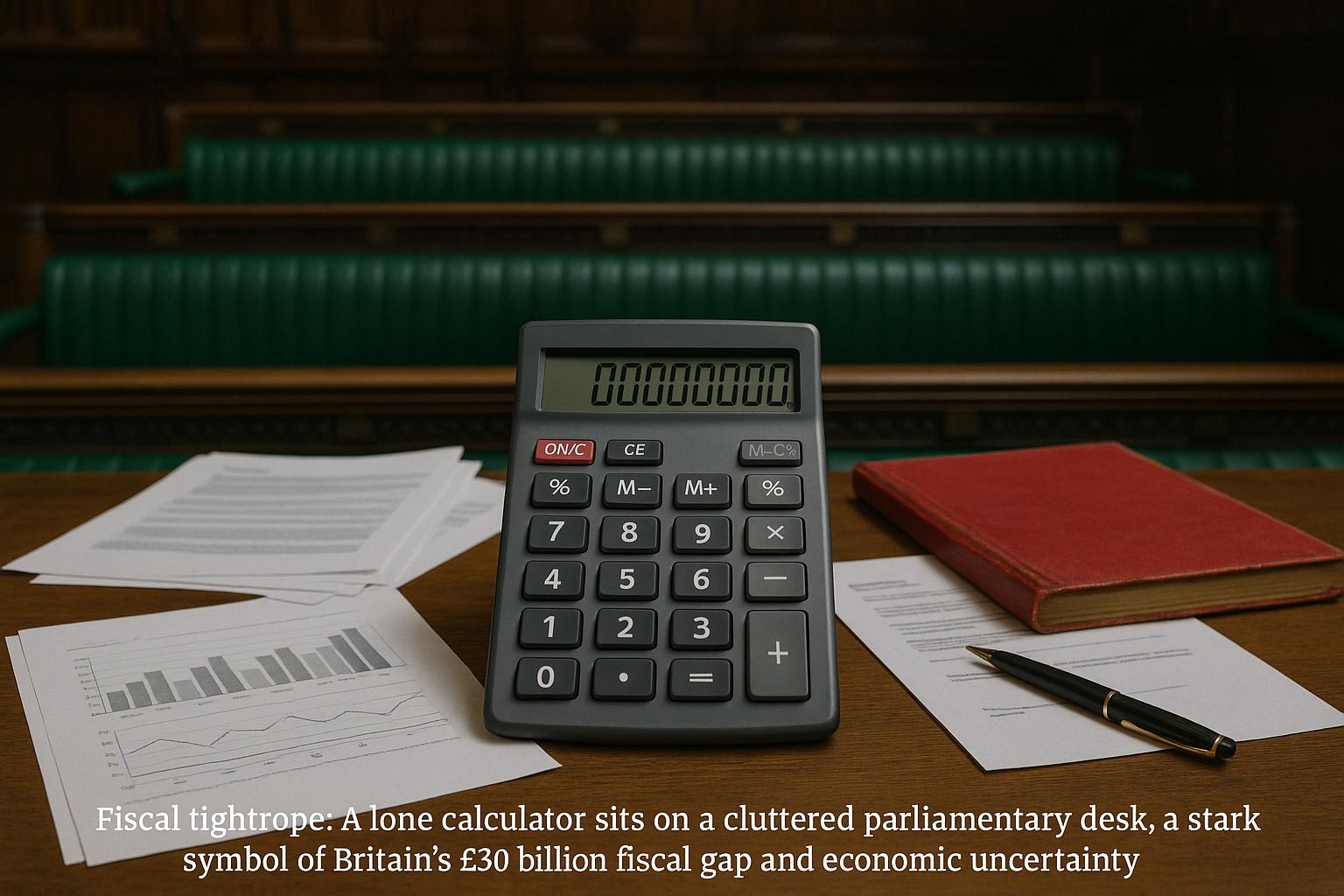As Rachel Reeves prepares for her second Budget on November 26, she faces a particularly formidable challenge in steering Britain’s finances through turbulent economic conditions both at home and abroad. Since assuming the role of Chancellor, Reeves has built a reputation as the "Iron Chancellor," committed to fiscal discipline notably through her pledge that current spending be fully met by taxation. However, this principled stance is under increasing strain amid wider political and economic pressures, including Labour’s political promises to shield the public from rises in National Insurance, VAT, and income taxes—a pledge that has begun to fray under party pressures.
The complications have been compounded by an update from the Office for Budget Responsibility (OBR) which has revised its forecasting methodology to reflect a lower expected productivity growth rate for the UK. This revision has precipitated an alarming fiscal gap that could potentially reach £30 billion, erasing any previous budgetary headroom Reeves might have claimed. The OBR chairman Richard Hughes has stated bluntly that the UK cannot afford the multitude of public spending promises currently on the table, describing past fiscal projections as overly optimistic and essentially illusory.
This situation reveals a broader historical pattern. Successive governments have employed optimistic economic growth forecasts to mask rising public debt levels, presenting misleading images of improving fiscal health. While Budget speeches have long touted debt reduction, the reality is starkly different: public debt has soared by 24% over the last 15 years and 60% over two decades. The resultant national debt now hovers near £2.8 trillion, reaching 100% of the country’s gross domestic product—a level not seen since the early 1960s, according to government statistics.
This mounting debt is driven by a combination of factors including enduring costs from crises such as the pandemic and the war in Ukraine, alongside continued welfare spending that expanded significantly during those times and has since failed to contract. Attempts at welfare cuts have often been rolled back amid political backlash, leaving borrowing on an upward trajectory. These dynamics evoke memories of the economic crisis of 1976 when a Labour government was forced to seek an International Monetary Fund bailout after fiscal mismanagement led to a severe downturn.
In response to these challenges, Reeves has emphasised at the Labour conference in Liverpool her resolve to maintain fiscal discipline, warning against uncontrolled spending. She has pledged adherence to the strict fiscal rules her predecessor Chancellors have set, aiming to avoid loss of market confidence that could exacerbate inflation and interest rates. This commitment comes alongside expected further tax rises, even as the government resists increasing income tax, corporation tax, and VAT rates directly. Her goal is to provide a more stable economic framework, including proposals to limit the comprehensive budget assessments by the OBR to once annually, as recommended by the International Monetary Fund, to reduce policy uncertainty for businesses and families.
Reeves is also poised to introduce new social policies, such as a guarantee of paid work to young unemployed people on Universal Credit, in an effort to tackle entrenched social issues while maintaining a pledge of day-to-day budget balance by 2029. Despite these efforts, Labour faces internal tensions with some members pushing for expanded child benefits and other increased social spending, which would add thousands of millions to the fiscal bill.
Prime Minister Keir Starmer has echoed Reeves’s warnings, underscoring the need for "firm and fair" decisions to contain debt and pledging not to dilute established fiscal rules, even as he navigates the pressures of a volatile global environment. However, some observers caution that the government’s inclination to 'clobber' working people with taxes, rather than fostering economic growth, risks stifling the very wealth creation necessary to ease the debt burden.
The government’s borrowing patterns reinforce these worries, with this fiscal year’s deficits exceeding previous forecasts and social benefit spending surging amid inflationary pressures. Debt markets are reportedly shifting their stance from mild concern to alarm, indicating growing skepticism about Britain’s fiscal trajectory.
In summary, as Rachel Reeves approaches one of the most crucial Budget moments in recent history, she confronts the dual challenge of maintaining Labour’s electoral promises while grappling with adverse economic realities that demand fiscal rigor. The choices ahead will be pivotal in determining whether the UK can avoid repeating the mistakes of past decades or risk a crisis akin to that of the 1970s.
📌 Reference Map:
- Paragraph 1 – [1], [3], [5]
- Paragraph 2 – [1], [6]
- Paragraph 3 – [1], [6]
- Paragraph 4 – [1], [3], [5]
- Paragraph 5 – [2], [3], [4]
- Paragraph 6 – [4], [5], [6]
- Paragraph 7 – [5], [1]
- Paragraph 8 – [6], [1]
- Paragraph 9 – [1], [3], [6]
Source: Noah Wire Services
